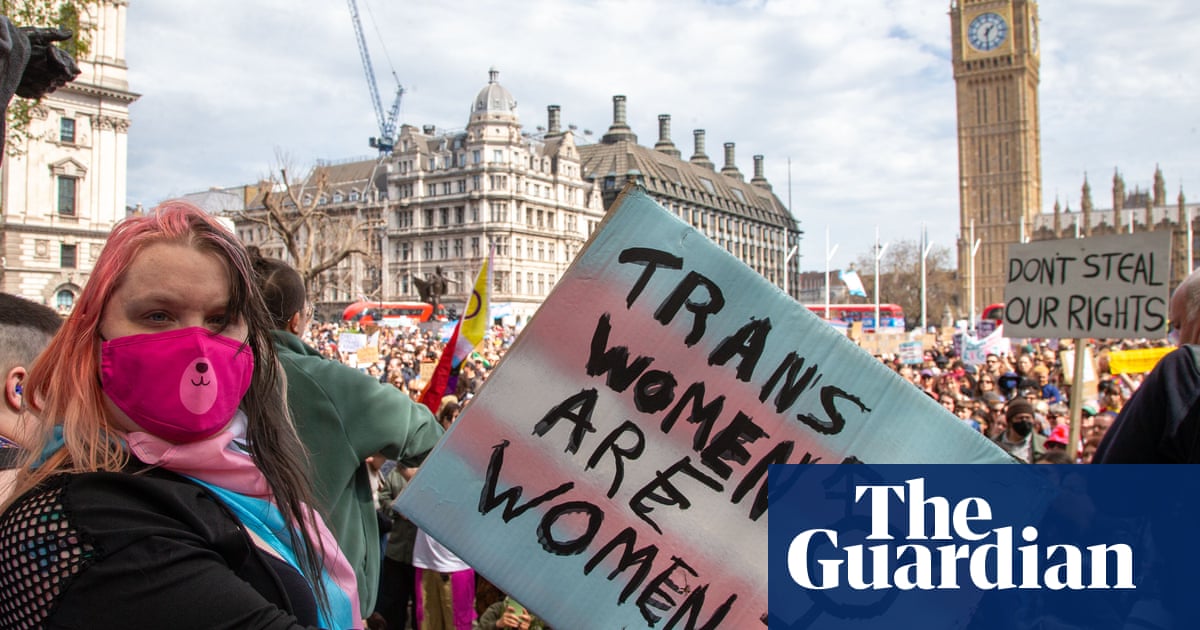A collection of groups campaigning on transgender issues have urged Europe’s main human rights body to investigate the UK over the implementation of the supreme court’s ruling on gender.
In a joint letter to the Council of Europe, the organisations said the situation in which transgender people were likely to be barred from using toilets of their acquired sex or joining single-sex organisations placed them in an “intermediate zone” of gender, saying this was a violation of the European convention on human rights (ECHR).
The five groups, Trans+ Solidarity Alliance, TransActual, Equality Network and Scottish Trans, Trans Safety Network and FeministGenderEquality Network, have asked the council to report on trans rights in the UK, adding: “We note that the situation is urgent and that without intervention, it seems likely to further deteriorate.”
The letter follows April’slandmark supreme court rulingthat “woman” and “sex” in the Equality Act referred only to a biological woman and to biological sex.
In its 88-page judgment, the court said that while the word “biological” did not appear in the definition of man or woman in the Equality Act, “the ordinary meaning of those plain and unambiguous words corresponds with the biological characteristics that make an individual a man or a woman”.
If “sex” did not only mean biological sex in the 2010 legislation, providers of single-sex spaces including changing rooms, homeless hostels and medical services would face “practical difficulties”, it said.
The justices added: “Read fairly and in context, the provisions relating to single-sex services can only be interpreted by reference to biological sex.”
According to the Equality and Human Rights Commission, which is consulting on the formal post-ruling guidance, due out later this summer, transgender peopleshould not be allowedto use toilets or changing spaces of the gender they live as, and that in some cases they also cannot use toilets of their birth sex.
The letter argues that this would leave transgender people reliant on gender-neutral facilities, which are often unavailable “and mandating their usage may require trans people to out themselves”.
It argues that this, plus the post-ruling interim advice that transgender people would not be allowed to join single sex associations of their acquired sex, would place them in an “intermediate zone” on sex, a violation of their right to respect for private life under article 8 of the ECHR.
The convention is interpreted by the European court of human rights, part of the Strasbourg-based Council of Europe, which is separate from the EU and to which Britain remains a member.
Jess O’Thomson from Trans+ Solidarity Alliance said trans people had already experienced “a huge rollback” of rights even before the final guidance on implementing the ruling had been published: “We are asking for a report to be opened into the state of trans people’s human rights in the UK, in the hope that this will encourage our politicians to listen and take action.”
Rebecca Don Kennedy, chief executive of Equality Network, said: “Trans people and their allies all over the UK are horrified with the recent chain of events following the supreme court ruling in April. The threat to trans people’s autonomy, freedom and dignity should concern anyone who values equality and human rights.“Trans people have a right to public life, and dignity in social interaction, they have a right to use the toilet safely, to leave their homes knowing that they can. They have a right to privacy, a right to engage with the world as themselves, to join clubs that fully celebrate and welcome them as who they are.”
